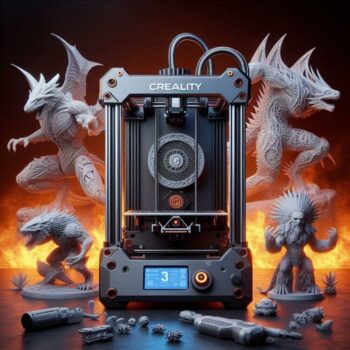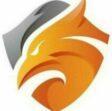
If you’re choosing your first 3D printer—or upgrading from a starter machine—this comparison guide breaks down the best options in 2025 for beginners, hobbyists, educators, small businesses, and serious makers.
Each recommendation below includes real-world considerations: ease of use, reliability, materials, print speed, build volume, and long-term value.
Best 3D Printers for Beginners
Beginners need a printer that works reliably out of the box, has strong community support, and prints PLA/PETG with minimal tuning. These models offer the best combination of price, reliability, and predictability.
Creality (Entry-Level FDM Printers)
Creality’s beginner printers remain the go-to choice for new makers due to their large user community, easy setup, and affordable replacement parts.
- Auto-leveling on most models
- Large ecosystem of upgrades
- Low maintenance cost
Best 3D Printers for Hobbyists
Hobbyists want more features—speed, better materials, silent operation, and reliability for daily printing. These printers are ideal for functional prints, cosplay, tools, and creative projects.
Bambu Lab A1 Mini
The A1 Mini is one of the fastest and most beginner-friendly printers thanks to Bambu’s tuned profiles, self-calibration, and smooth printing experience.
- Fully auto-calibrating
- Very fast CoreXY architecture
- Excellent multi-color support (via AMS Lite)
Great for hobbyists, small model makers, and daily printing projects.
Best 3D Printers for Classrooms & Educators
Educational environments require safety, low noise, and reliability. These printers minimize maintenance while maximizing success rates—important when working with students.
Enclosed FDM Printers
Enclosures prevent accidental burns, keep noise down, and help maintain consistent print temperatures—ideal for classroom use.
- Stable temperatures for ABS/ASA
- Reduced noise for classrooms
- Better safety for younger students
Pair with simple materials like PLA or PETG for trouble-free performance.
Best 3D Printers for Small Businesses & Side Hustles
Small businesses need speed, accuracy, uptime, and material flexibility—because the printer is part of a real workflow, not just a hobby.
Workhorse FDM Printer + 3D Scanner (Best Workflow)
Pairing a reliable printer with a 3D scanner gives businesses a major advantage: the ability to reverse engineer parts, match real-world geometry, and accelerate prototyping.
- FDM printer: daily production & functional parts
- 3D scanner: digitizing broken or legacy parts
- Perfect for prototyping or small-batch production
2025 3D Printer Comparison Table
| Category | Top Pick | Price Range | Key Benefit |
|---|---|---|---|
| Beginners | Creality FDM Printers | $250–$500 | Reliable, easy to learn |
| Hobbyists | Bambu Lab A1 Mini | $299–$500+ | Fast, smooth, multi-color printing |
| Educators | Enclosed FDM Printer | $400–$1,200 | Quiet, safe, low-maintenance |
| Business Use | Printer + 3D Scanner Setup | $700–$1,500+ | Production-ready workflow |
Recommended Picks (Trusted & Tested)
- Shop Creality 3D Printers – best beginner FDM lineup.
- Explore 3DMakerpro 3D Scanners – perfect for small business workflows.
These links support my work at no extra cost to you.
FAQ: Choosing the Best 3D Printer
What’s the best 3D printer for a total beginner?
A reliable FDM printer with auto-leveling and strong PLA/PETG profiles is ideal. Creality units are a great starting point.
Do I need multi-color printing?
Only if your projects require it. It’s great for models and toys, but not required for functional parts.
Should I get a printer or a scanner first?
Start with a printer. Add a scanner once you want to reverse engineer or capture real-world geometry.
